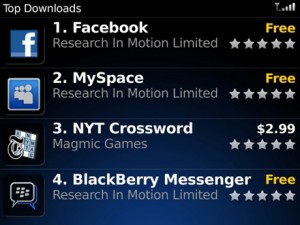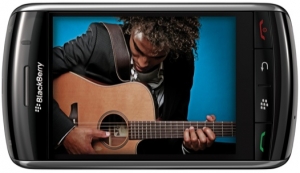 Here’s an interesting jab at Google and its mobile operating system Android: Verizon, the No. 2 U.S. carrier, is joining the LiMo Foundation because it has software and phones available, Google does not.
Here’s an interesting jab at Google and its mobile operating system Android: Verizon, the No. 2 U.S. carrier, is joining the LiMo Foundation because it has software and phones available, Google does not.
 The LiMo Foundation, representing Linux Mobile, is the lesser known of the mobile operating systems. There’s Microsoft’s Windows Mobile, supplying many makers of smart phones; Symbian, supplier mostly to Nokia; Qualcomm, supplier mostly to Verizon; upstart Google, and Apple. Then there’s Linux Mobile, slowly creeping along by adding devices mostly in Europe and Asia.
The LiMo Foundation, representing Linux Mobile, is the lesser known of the mobile operating systems. There’s Microsoft’s Windows Mobile, supplying many makers of smart phones; Symbian, supplier mostly to Nokia; Qualcomm, supplier mostly to Verizon; upstart Google, and Apple. Then there’s Linux Mobile, slowly creeping along by adding devices mostly in Europe and Asia.
The LiMo (Linux Mobile) Foundation is a consortium of companies well vested in the mobile industry: Motorola, Samsung, LG Electronics, Vodaphone, NTT DoCoMo, and many others. Verizon is the first U.S. carrier to join the LiMo initiative, which now has 40 members worldwide.
The idea behind LiMo is to build a standardized, Linux-based mobile platform, which members can customize to meet their needs. For the most part, Linux Mobile is a competitor to Android, which is not yet available on any handsets. Linux Mobile is showing up on phones from Motorola, NEC, Panasonic, Samsung, and LG.
Kyle Malady, vice president of network for Verizon, said in a conference call today that he expects Verizon to sell both regular devices and smart phones using mobile Linux next year.
“We expect that Linux Mobile will rapidly become our preferred operating system,” Malady said to The Associated Press [via The New York Times] . “As the development community looks at how best to bring new applications to the marketplace, they should check out LiMo and Linux Mobile first.”
Continue reading »
![]() Like many British acts, UK-based music download service 7digital is hoping to conquer America. Today the company announced that its 6 million plus strong MP3 music store has opened its doors in the US, with tracked offered from Universal Music Group, Warner, EMI, Sony and an array independent labels.
Like many British acts, UK-based music download service 7digital is hoping to conquer America. Today the company announced that its 6 million plus strong MP3 music store has opened its doors in the US, with tracked offered from Universal Music Group, Warner, EMI, Sony and an array independent labels. Adobe has long talked up its ambition to have Flash running on all manner of screens, not just the humble PC, and today the company got a lot closer to walking the walk not just talking.
Adobe has long talked up its ambition to have Flash running on all manner of screens, not just the humble PC, and today the company got a lot closer to walking the walk not just talking.
 Already entrenched in the corporate world, it’s no secret that Canadian handset maker RIM harbors serious consumer ambitions, an area it sees as most likely to produce future growth. Case in point is the company’s recently released ‘BlackBerry Storm’, an all touch screen affair that arguably puts video playback and other consumer features ahead of ‘corporate’ email, which has long been RIM’s ‘bread and butter’.
Already entrenched in the corporate world, it’s no secret that Canadian handset maker RIM harbors serious consumer ambitions, an area it sees as most likely to produce future growth. Case in point is the company’s recently released ‘BlackBerry Storm’, an all touch screen affair that arguably puts video playback and other consumer features ahead of ‘corporate’ email, which has long been RIM’s ‘bread and butter’. Research In Motion is close to launching a a full-episode television service for the company’s line of BlackBerry smartphones. An official announcement could come as early as next week at CTIA,
Research In Motion is close to launching a a full-episode television service for the company’s line of BlackBerry smartphones. An official announcement could come as early as next week at CTIA,  It’s an honest yet unwelcome admission: rushing devices to market with buggy and unfinished software is the “new reality” in the smartphone space, RIM’s co-Chief Executive Jim Balsillie
It’s an honest yet unwelcome admission: rushing devices to market with buggy and unfinished software is the “new reality” in the smartphone space, RIM’s co-Chief Executive Jim Balsillie 
 While the
While the 

